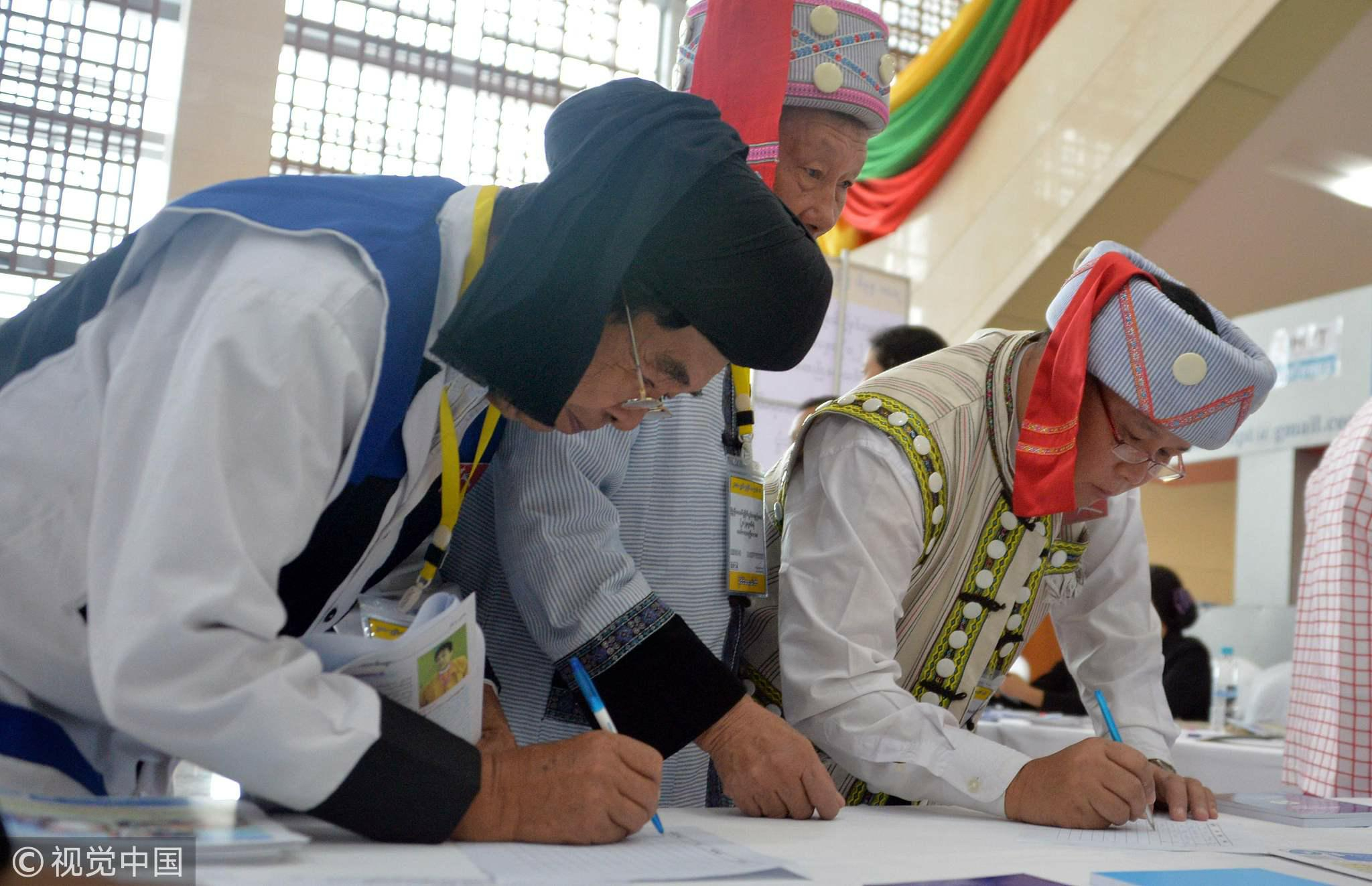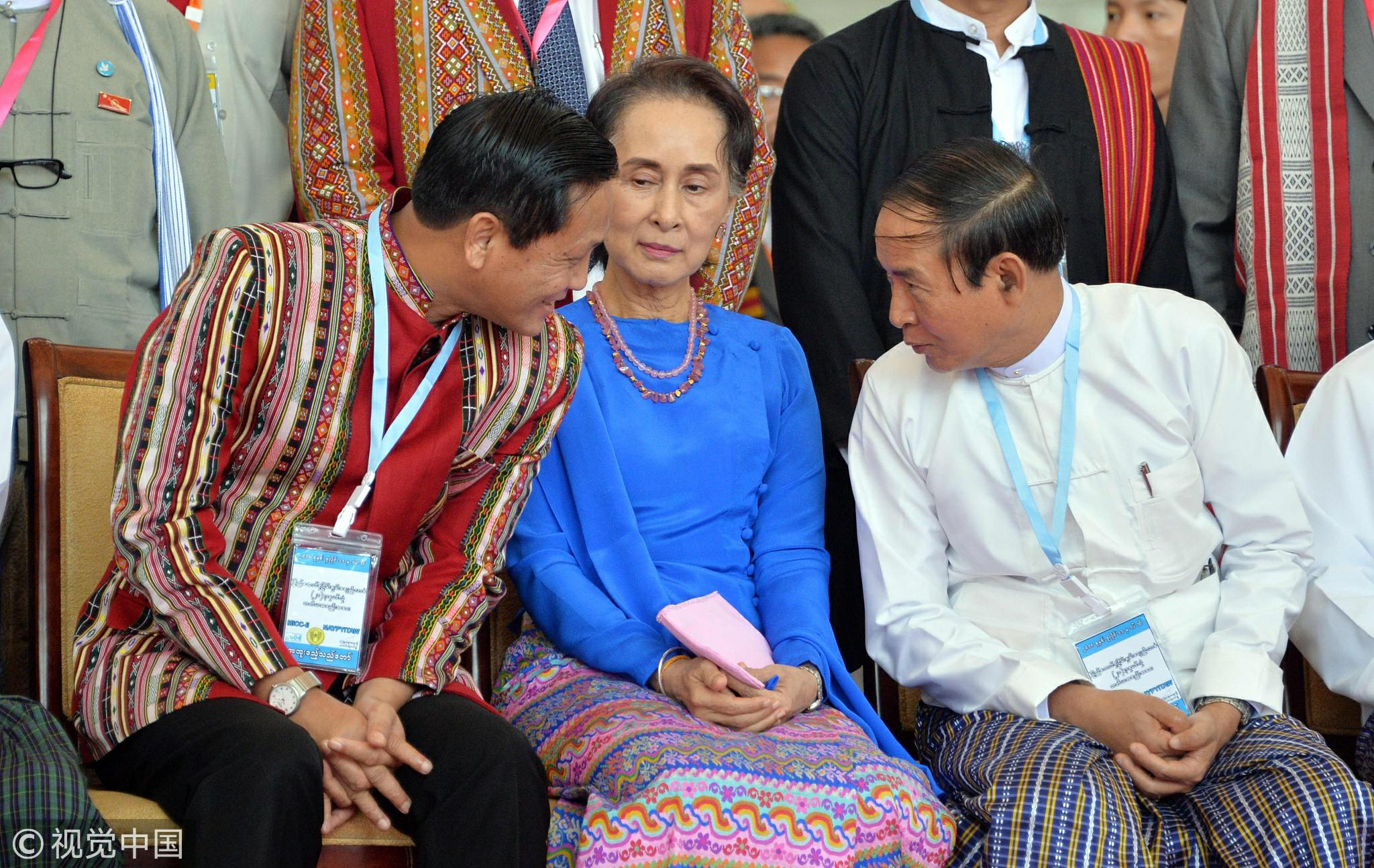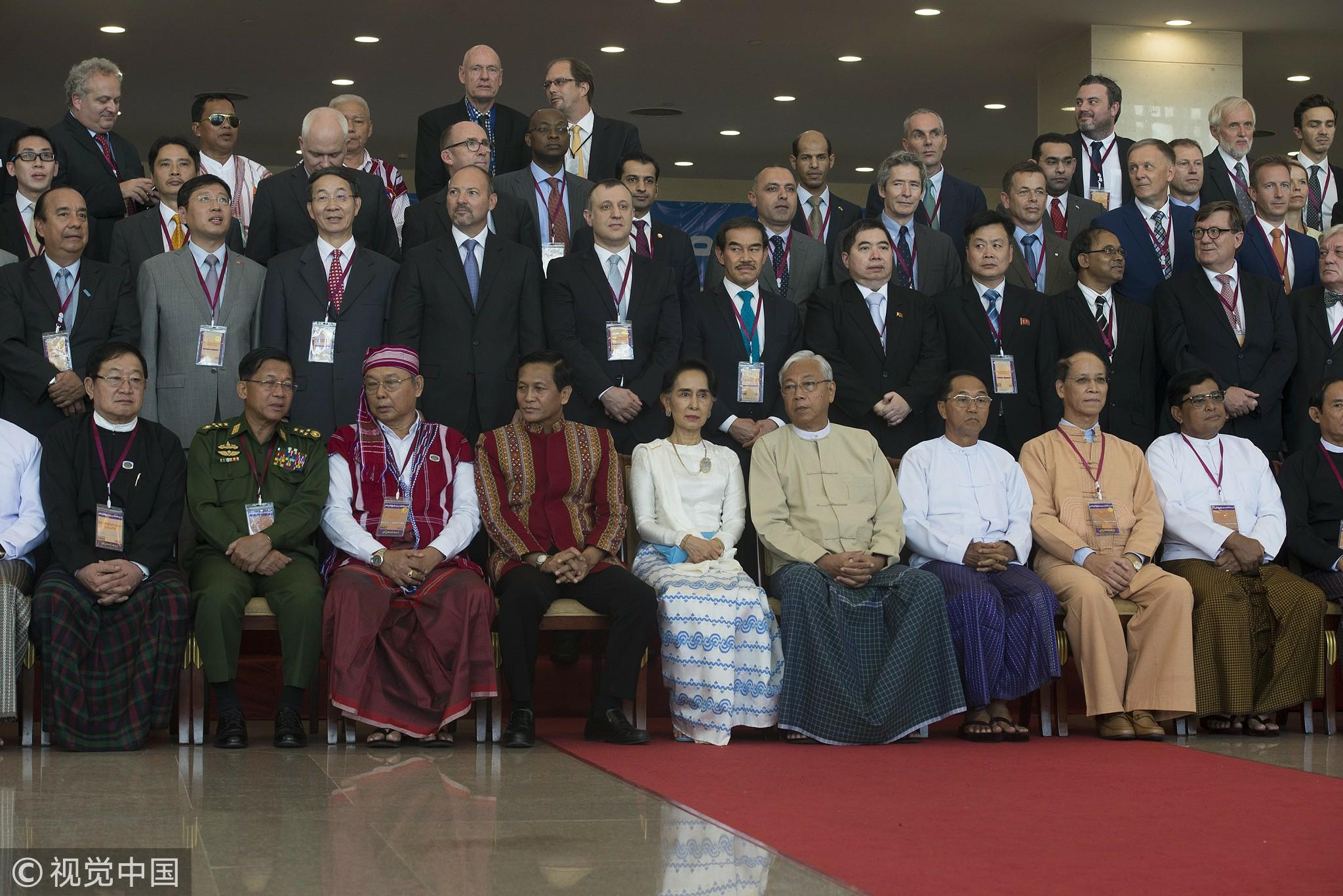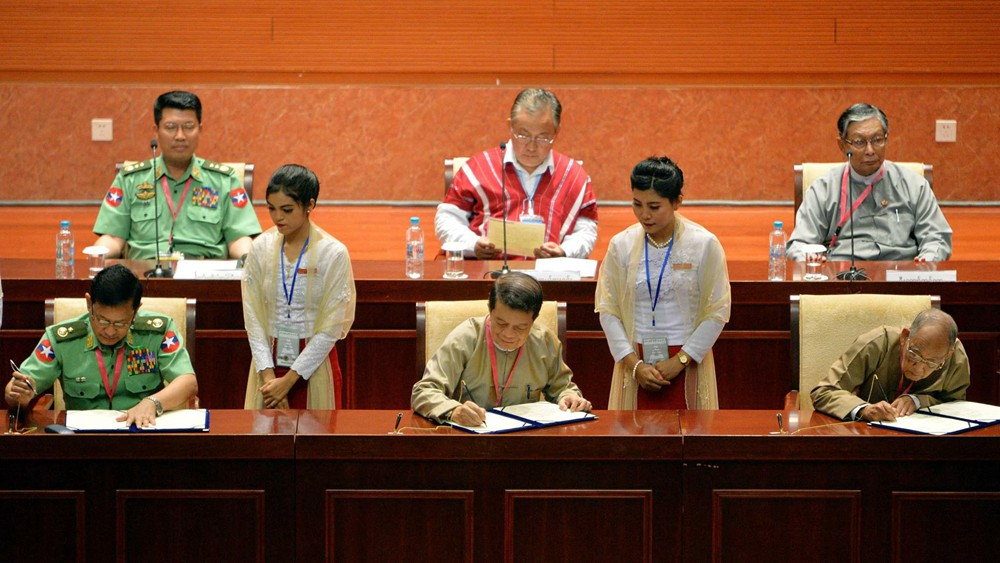The six-day third session of Myanmar's 21st Century Panglong Peace Conference concluded in capital city Nay Pyi Taw on Monday, with 14 more basic principles adopted as Part Two of the Union Accord, reaching another milestone in the peace process.
The 14 agreed principles in accordance with the Nationwide Ceasefire Accord (NCA) were signed by leaders of the government, parliament, military, ethnic armed groups and political parties.
Of the basic principles, proposed by the Union Peace Dialogue Joint Committee (UPDJC) for establishing a democratic and federal union, four are related to politics, one is economic, seven are social and two focus on land and environmental issues.

Representatives of Myanmar's ethnic groups attend the closing ceremony of the third session of the Union Peace Conference in Nay Pyi Taw July 16, 2018. /VCG Photo
Representatives of Myanmar's ethnic groups attend the closing ceremony of the third session of the Union Peace Conference in Nay Pyi Taw July 16, 2018. /VCG Photo
State Counselor Aung San Suu Kyi, also chairperson of both the National Reconciliation and Peace Center and the Union Peace Dialogue Joint Committee, underlined that the main essence of the conference is the ability to continue the political discussion process through mutual understanding and efforts. She said that the signing of the Part Two agreements indicates that the conference had not stopped or turned back, but was progressing forward.
Suu Kyi pointed out that the conference was unable to reach an agreement in the security sector, emphasizing that a complete union accord needs to have agreements in this sector.
To resolve the difficulty, the device of political discussion framework needs to be reviewed and changed to a more appropriate one and strive toward making a better work process, she told the closing ceremony of the conference.

Myanmar Vice President Henry Van Thio (L), State Counselor and Foreign Minister Aung San Suu Kyi (C) and President Win Myint (R) speak after the third session of the Union Peace Conference in Nay Pyi Taw July 11, 2018. /VCG Photo
Myanmar Vice President Henry Van Thio (L), State Counselor and Foreign Minister Aung San Suu Kyi (C) and President Win Myint (R) speak after the third session of the Union Peace Conference in Nay Pyi Taw July 11, 2018. /VCG Photo
Suu Kyi also pointed out that ethnic armed organizations, that did not sign the NCA but attended the conference at invitation, were able to see the first-hand discussions and negotiations made at the conference and their representatives were also able to meet separately with the government leadership, obtaining many good possibilities of participating in the peace process through their open and cordial discussions.
She called for the next move to be completing the Union Accord for Peace following the signing of the 14 more basic principles as Part Two of the union accord.
At the end of the Panglong Peace conference, a statement was issued in which representatives pledged to strive for laying down more firm fundamental principles for establishing a democratic and federal union by holding another session later this year and two more in 2019.
A total of 10 signatories to the NCA attended the conference, while seven other invited non-NCA-signatories of Northern Alliance armed groups, which attended for four days, vowed to continue the peace process meetings separately with the government on a later date.
Of the basic principles adopted at the conference, the four political-related basic principles highlight gender equality, inclusion of at least 30 percent of women in each sector, prevention of violence against women and raising women's capacity.

Myanmar's President Htin Kyaw (4th R), Foreign Minister and State Counselor Aung San Suu Kyi (5th R) and other participants pose for a group photo after the opening ceremony of the 21st Century Panglong Conference in Nay Pyi Taw, Myanmar, August 31, 2016. /VCG Photo
Myanmar's President Htin Kyaw (4th R), Foreign Minister and State Counselor Aung San Suu Kyi (5th R) and other participants pose for a group photo after the opening ceremony of the 21st Century Panglong Conference in Nay Pyi Taw, Myanmar, August 31, 2016. /VCG Photo
The one economic-related basic principle calls for rights for regional or state governments to draw up and implement an economic development policy and projects of their own, while the seven social-related basic principles include implementation of an all-inclusive education system, universal health coverage, enactment of laws that guarantee women's rights and harm reduction for drug addicts.
The two land and environmental-related basic principles deal with the requirements that land in the country belongs to local citizens only and shall not be owned by foreigners directly or indirectly, and pre-assessment shall be made in terms of environmental, social and health impact as well as coordination with local people before implementing projects using land.
The 14 basic principles adopted in the third session have brought the total number incorporated into the union accord for peace to 51.
Following the October 2015 initiation of the NCA, the 21st Century Panglong Peace Conferences were held twice during the incumbent government in August 2016 and May 2017 respectively.
The second session of the peace conference was able to incorporate a total of 37 adopted basic principles into the union accord as Part I in the country's peace process.
(Cover: Myanmar military officials, government negotiators and representatives of ethnic groups sign a document during the closing ceremony of the third session of the Union Peace Conference in Naypyidaw July 16, 2018. /VCG Photo)
Source(s): Xinhua News Agency





